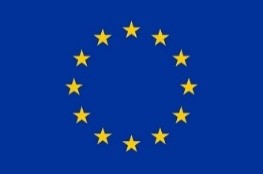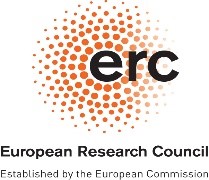Received:
2019-03-13 | Accepted:
2019-05-25 | Published:
2019-06-30
Title
Towards diversification of the economy of Kazakhstan via information support for the tourism industry
Abstract
Raising awareness of tourism players requires improving the comfort of the information environment of their activities. In tourism practices, information support of tourist activities that ensures the comfort of tourist services and the attractiveness of the tourist region strengthens the motivation of consumers to visit this territory. The development of tourism demand, caused by tourists awareness, and at the same time demographic changes, accelerate the segmentation and the creation of new types of proposals. Recent advances in telecommunications, networking organizations, creation, and processing of databases and electronic marketing provide new business opportunities in the tourism sector and a significant impact on the model of traditional business. Therefore, the main sphere of changes and innovations in tourism is related to the use of information and communication technologies. Kazakhstan with its unique natural resources and original culture of the nomadic people has a huge untapped potential for tourism development in the international and regional markets. The tourism industry in the Republic of Kazakhstan is recognized as one of the priority branches of the economy at the state level. For example, in the implementation of the provisions of industrial-innovative development of the country's economy, the leading role belongs to the cluster system, in particular to the tourism cluster. Modern trends in the development of this industry are that tourists who have studied the most famous resorts in the world well are striving to those countries where the tourism sector is just beginning to develop. At the present stage of tourism development, Kazakhstan is becoming a more attractive country for extreme holiday lovers and people interested in history and the present of the countries located on the Great Silk Road. From this perspective, the attractiveness of Kazakhstan is growing. The tourist potential of recreational resources and historical and cultural heritage allows the Republic to harmoniously integrate into the international tourism market and achieve intensive development of tourism in the country. This will ensure sustainable employment and income growth, stimulate the development of related industries and increase of investment flows in the national economy.
Keywords
Kazakhstan, Kazakhstan's economic sectors, pre-employment, tourism, non governmental organizations, information
technologies and support, computer networks, diversification
JEL classifications
L31
, O53
URI
http://jssidoi.org/ird/article/11
DOI
HAL
Pages
138-154
Funding
Parts of this text are spinoffs from research in the framework of the project European Union's Horizon 2020 research and innovation programme under grant agreement No 693799.
This is an open access issue and all published articles are licensed under a
Creative Commons Attribution 4.0 International License
Journal title
Insights into Regional Development
Volume
1
Number
2
Issue date
June 2019
Issue DOI
ISSN
ISSN 2345-0282 (online)
Publisher
VšĮ Entrepreneurship and Sustainability Center, Vilnius, Lithuania
Cited

Article views & downloads
HTML views: 2932 | PDF downloads: 1353
References
Boronenko, V.; Lavrinenko, O. 2015. Territorial development of Iceland: case study of social and economic interactions within global context. Social sciences for regional development in 2015: Proceedings of the X International scientific. Conf. (16-17 October 2015). Daugavpils University Latvia
Search via ReFindit
Delmon, J. 2015. Private Sector Investment in Infrastructure: Project Finance, PPP Projects and Risk. The World Bank and Kluwer Law International
Search via ReFindit
Dobrovolskienė, N., Tvaronavičienė, M., Tamošiūnienė, R. 2017. Tackling projects on sustainability: a Lithuanian case study, Entrepreneurship and Sustainability Issues 4(4): 477–488. https://doi.org/10.9770/jesi.2017.4.4(6)
Search via ReFindit
Ignatjeva S., Musayeva N. 2016. Development of a methodology for assessing the tourism sector competitiveness at the national level, Global Journal on Humanites & Social Sciences, 04, 138-147. Retrieved from: http://sproc.org/ojs/index.php/pntsbs
Search via ReFindit
Isatayeva, G., Seitova, V., Koptayeva, G., Turlybekova, A., Mutaliyeva, A. 2019. Financing of young knowledge-based companies after the financial crisis: the case of Kazakhstan, Entrepreneurship and Sustainability Issues 6(3), 1126-1134. https://doi.org/10.9770/jesi.2019.6.3(12)
Search via ReFindit
Meņšikovs, V.; Ignatjeva, S.; Stankevičs, A. 2014. Higher education's contribution into economic performance and innovativeness of Latvia: exploratory research. Retrieved from: http://www.ekof.bg.ac.rs/wp-content/uploads/2014/04/01.pdf
Search via ReFindit
Official Internet resource of Committee of Statistics of Ministry of the national economy of the Republic of Kazakhstan. Retrieved from: www.stat.gov.kz
Search via ReFindit
Olefirenko, O., Petrenko, E., Shevyakova, A., Zhartay, Z. 2016. Towards economic security through diversification: case of Kazakhstan, Entrepreneurship and Sustainability Issues 5(4): 509-518. http://dx.doi.org/10.9770/jssi.2016.5.4(6)
Search via ReFindit
Petrenko, E., Iskakov, N., Metsyk, O.; Khassanova, T. 2017. Ecosystem of entrepreneurship: risks related to loss of trust in stability of economic environment in Kazakhstan, Entrepreneurship and Sustainability Issues 5(1): 105-115. https://doi.org/10.9770/jesi.2017.5.1(8)
Search via ReFindit
Resolution of the Government of the Republic of Kazakhstan No. 406 of 30 June 2017 "On Approving the Concept of the Development of the Tourism Industry of the Republic of Kazakhstan until 2023" Retrieved from: https://tengrinews.kz/zakon/pravitelstvo_respubliki_kazahstan_premer_ministr_rk/kultupa/id-P1700000406/
Search via ReFindit
Shevyakova, A. 2014. Features of the socio-economic stratification in the Republic of Kazakhstan. Social sciences for regional development in 2014: Proceedings of the IX International scientific. Conf. (17-18 October 2014). Daugavpils University Latvia.
Search via ReFindit
Sokolova, D. 2011. Information systems of booking in tourism.//The collection of scientific articles "Information technologies in economy, management and education". Retrieved from: http://tourlib.net/statti_tourism/sokolova4.htm
Search via ReFindit
Tvaronavičienė, M., Razminienė, K., Piccinetti, L. (2015). Cluster efficiency study through benchmarking, Entrepreneurship and Sustainability Issues 3(2): 120-128 http://dx.doi.org/10.9770/jesi.2015.3.2(0)
Search via ReFindit
Tvaronavičienė, M.; Grybaitė, V.; Tvaronavičienė, A. 2009. If Institutional Performance Matters: Development Comparisons of Lithuania, Latvia and Estonia, Journal of Business Economics and Management 10(3): 271–278. http://dx.doi.org/10.3846/1611-1699.2009.10.271-278
Search via ReFindit
World Bank. 2015. Kazakhstan: Adjusting to Low Oil Prices, Challenging Times Ahead. Retrieved from: http://www.worldbank.org/en/country/kazakhstan/publication/economic-update-fall-2015
Search via ReFindit












 RSS 1.0
RSS 1.0